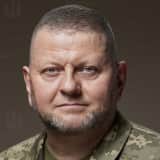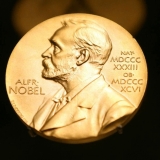An unsettling anniversary: when will the history of the Volyn tragedy no longer divide Ukraine and Poland?

"Together, we honour all the innocent victims killed in Volyn! Memory unites us! Together we are stronger," said Polish President Andrzej Duda, commenting on his visit to Lutsk, where he and Ukrainian President Volodymyr Zelenskyy took part in an ecumenical service on 9 July.
On 11 July, Poland marks the anniversary of the Volyn tragedy; this year, it's the 80th anniversary. [The Volyn (Volhynia) tragedy was a series of events that led to the ethnic cleansing of the Polish and Ukrainian populations in 1943 during World War II. It was part of a long-standing rivalry between Ukrainians and Poles in what is now Ukraine's west. Poland considers the Volyn tragedy a genocide of Poles - ed.]
This year’s commemoration of the tragedy coincides with an election campaign in Poland, as Ukraine’s neighbour will be holding crucial parliamentary elections in autumn, the outcome of which is unclear.
There has been concern that the events of 80 years ago would be exploited in the election campaign.
And this could deal a blow to relations between Ukraine and Poland.
There are good reasons to think so, and they did not appear out of the blue. A poll conducted by Poland’s Centre for Public Opinion Research (CBOS) indicates that the majority of Poles believe that Volodymyr Zelenskyy should apologise on behalf of his people for the atrocities in Volyn.
The only difference is that 50% of Polish respondents believe these apologies should be issued as soon as possible, while 28% think they can wait until after the war.
What is telling is that Poles have lost sight of the fact that the Ukrainian president has already expressed such apologies on several occasions. And in July 2016, former President Petro Poroshenko knelt in front of the monument to the victims of the Volyn tragedy in Warsaw's Żoliborz district.
Given these circumstances, the Polish president's action is indeed significant. At the very least, it reduces the level of tension and makes it more difficult for the topic of Volyn to be exploited in political campaigning.
This may not be Andrzej Duda's only move in this regard. Earlier, he announced a "series of joint Polish-Ukrainian events" dedicated to commemorating the victims of Volyn. There is a possibility that the Polish and Ukrainian presidents will issue another joint statement on 11 July.
Incidentally, this is not the first time Andrzej Duda has tried to reduce tension over the Volyn tragedy. In May, Polish Foreign Ministry spokesperson Łukasz Jasina issued a statement demanding an apology and greater remorse from Volodymyr Zelenskyy for what happened in Volyn. This statement provoked a robust response from the Ukrainian ambassador - and from the Polish President's Office as well. Eventually, Jasina was forced to go on indefinite leave.
Even though this statement is believed to have been a pretext rather than the real reason for the punishment, the case sent a signal to any government officials who wanted to use sensitive issues from Ukrainian-Polish history to boost their political popularity.
Notably, this position is not fully embraced even by the ruling Law and Justice [Prawo i Sprawiedliwość (PiS)] faction in Poland.
A few days earlier, Polish Prime Minister Mateusz Morawiecki also visited Ukraine to commemorate the victims of Volyn. No senior Ukrainian officials accompanied him on this visit, and therefore this was more of a signal to the conservative part of the PiS electorate that the party remains steadfast in its demands that Ukrainians recognise the "historical truth" and take sole responsibility for these atrocities.
The Ukrainian side, while not questioning that war crimes were committed against the Polish civilian population, emphasises that both sides committed such crimes, and therefore responsibility must be mutual.
In any case, there is reason to hope that the tragic anniversary will not harm relations between Ukraine and Poland. At least not this year.
However, the problem is likely to persist and threaten bilateral relations over time.
The only question is when this will happen next, as it will be a while before the next milestone anniversary. However, if PiS finds itself in opposition, it could radicalise its position, including on relations with Ukraine regarding the remembrance issue.
Another painful lesson of recent years is that there is a certain percentage of Poles, and not an insignificant one, who will not accept any concessions from the Ukrainian side - neither further apologies from senior officials, nor official recognition by the Ukrainian Parliament of the Volyn 1943 events as "a genocide committed by Ukrainian nationalists" (as Warsaw is constantly calling for).
We can only hope that as the years go by, the percentage of Poles who do not need these apologies will increase (currently only 13% of Poles fall into this category according to the CBOS survey cited above).
One positive development is that 78% of Poles believe in the potential for Ukrainian-Polish reconciliation.
However, this reconciliation is most likely to be achieved because of the fact that for both Ukrainians and Poles, the current cooperation between the countries, and the prospects for cooperation in the future, will be more important than historical disputes.
The 16 months of full-scale war, beyond all previous tragedies, have brought Ukrainians and Poles much closer together. This is the symbolic potential that, while it may not put an end to historical disputes, can at least reduce their relevance for our future.
This is a pathway that will sooner or later epitomise the expression that history should be left to historians - or at least that politicians should not be let anywhere near it.
Publications in the Expert Opinion section are not editorial articles, and the views reflected are solely the authors’ own
Translation: Artem Yakymyshyn
Editing: Teresa Pearce






